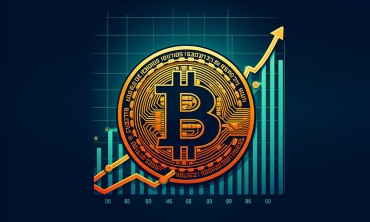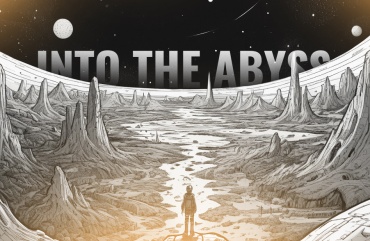Blockchain’s secure, unchangeable ledger serves many industries – not just digital currencies. This article explores how blockchain is helping fields like supply chains, healthcare, identification, and energy. Each industry uses the flexible system to solve unique issues.
Blockchain’s Transformative Impact on Gaming
Blockchain technology, first linked to cryptocurrencies, has broader implications beyond financial transactions. It revolutionizes online gambling by guaranteeing openness, security, and fairness – invaluable for creating and operating online gaming platforms.
Provably fair gaming systems let players verify game results independently, ensuring truly random dice rolls, spins on slots for real money, and card deals. This openness fosters trust between players and operators, attracting a discerning player base valuing honesty and fairness.
Blockchain makes gaming environments inclusive and accessible. Online casinos avoid banking restrictions and costs by using cryptocurrencies. Global players can participate without traditional bank accounts or credit cards. Access is democratized – no longer limited by geography or income, enabling worldwide audiences.
Smart contracts automate rewards based on game outcomes, ensuring players receive winnings promptly, reducing transaction times from days to minutes.
Blockchain empowers developers and operators to create innovative, reliable, engaging gaming experiences. It ushers in an era where player satisfaction, transparency, and fairness are paramount for online casinos.
Blockchain in Healthcare

Healthcare is being transformed by blockchain tech. It can revamp electronic health records, strengthen patient data protection, and optimize clinical human trials.
Decentralized, interoperable health record systems are promising, and significant patient privacy improvements are expected.
In hospitals, blockchain secures patient details. It was critical in tracking and distributing global vaccine supplies, including COVID-19 vaccines.
As we move towards a distributed, secure, efficient healthcare information management method, blockchain appears poised for profound industry changes.
Electronic Health Records
EHR systems have become essential in today’s healthcare practices. They maintain and organize patients’ medical records. However, these systems face significant issues like data security breaches and lack of compatibility across various EHR platforms.
Blockchain technology offers solutions through its decentralized network structure. This structure strengthens data protection and promotes system interoperability, revolutionizing EHR functionalities.
Blockchain ensures the accuracy and verifiability of information within EHR systems. This is thanks to its unalterable ledger feature. This feature provides a trustworthy verification trail for legal purposes and regulation compliance.
Blockchain-infused EHR solutions empower patients with enhanced control over their health records. Patients can manage consent and enjoy increased transparency regarding their personal health documentation.
Patient Data Security
Protecting patient information is crucial in the healthcare sector. Privacy violations can have significant consequences for individuals and medical institutions.
Blockchain technology in healthcare offers a strong barrier against these infringements. It establishes secure, unalterable logs of patient information, bolstering data protection.
Blockchain’s decentralized nature ensures patient records are broken up and scattered throughout a network.
This network functions like a distributed database, with each piece securely locked at different sites. This unique configuration greatly reduces the chances of data theft and unauthorized entry, minimizing potential breaches.
Clinical Trials
Progress in medicine hinges on doing clinical trials well. But these trials are tricky stuff. Why? They need loads of data. They follow strict rules. And they must be fully transparent. Enter blockchain tech.
This could enhance clinical trial processes. How? By boosting transparency and securing data and integrity. It also aids patient recruitment while shielding their private info.
As a ledger that can’t be altered, blockchain is key for making trial info genuine and constant. This is crucial for spreading findings far and wide.
Smart contracts allowed by blockchain act as automated ethical guardians in studies. They enforce informed consent and ethical adherence automatically. This means clinical research maintains regulatory compliance easily.
Blockchain in Digital Identity

In this digital age, identity theft worries us more and more. Standard identity verification approaches tend to be sloppy and mistake-prone.
But blockchain tech offers a sharp solution. It fortifies digital identity management robustly. How? By verifying identities securely. By hindering fraud and shielding data privacy.
Blockchain’s decentralized framework brings multiple upsides for managing identities.
- Boosted defenses against unauthorized access, identity theft via enhanced security protocols
- Decentralized IDs and verified credentials give folks more command of their digital ID. You get extra privacy for details, too – thanks to blockchain tech.
Identity Verification
Checking who you are is critical for tasks like opening bank accounts or seeing doctors. Blockchain’s decentralized IDs and verifiable credentials make this way safer and smoother. Strong encryption secures each data bit in an unchangeable chain, protecting your info hugely.
It’s almost like your bank account uses a decentralized database, ramping up security massively. The crypto algorithms blockchain employs are super robust at keeping data safe.
Fraud Prevention
Digital fraud costs a fortune, but blockchain’s decentralized nature and staunch security protocols help block identity theft and data breaches, stopping fake transactions effectively. With blockchain verifying IDs, we benefit from:
- No more third parties needed for approval
- Massively lowered risks of identity crimes or fraud
- Cryptographic hashing, digital signatures, and consensus methods are used to check transactions very carefully. Only actual transactions go on the blockchain. This protects against dishonest activity.
Data Privacy
Keeping data private is extremely important now that breaches happen often. Using blockchain tech can improve security and privacy for user data. It gives people more control over digital identities.
Blockchain improves privacy by letting users share data with fake names while encrypting authentic details securely. Actual identities stay hidden unless needed.
Personal info isn’t stored on the blockchain itself. Instead, private blockchain tech manages sensitive credentials in decentralized identity wallets carefully.
Blockchain in Intellectual Property
Blockchain is creating a new path for intellectual property rights. By protecting copyrights, improving royalty payouts, and verifying content origins, it enables an innovative digital rights phase.
This framework utilizes blockchain extensively. Sony Music Japan adopted it to optimize royalties for creators. Non-fungible tokens (NFTs) on intelligent contract blockchains prove digital asset ownership, assisting authenticity verification.
Copyright Protection
Safeguarding copyright is vital in creative pursuits. It shows an author’s ownership and right to profit from their work. Blockchain prevents intellectual property theft and piracy by clearly recording ownership rights. This unchangeable ledger is crucial.
Blockai, Mediachain, Ascribe, Ujo Music, and KodakOne use blockchain to register copyrights accurately. They trace artwork origins while enabling independent marketing management. This technology streamlines payments to artists, too. Both copyright integrity and transactional efficiency are ensured.
Ultimately, blockchain establishes registries for IP rights without formal registration. It guarantees security against tampering with digital copyrighted material records within its system.
Royalty Distribution
Creators deserve fair compensation, but conventional royalty distribution systems are often complex and slow. Blockchain allows artists to bypass music industry middlemen by using smart contracts that immediately collect and allocate royalties to rights holders.
Blockchain technology solves artist payment delays from traditional royalty systems. Artists can directly manage and earn money from their creative works without record labels or third parties. This empowers artists financially.
Content Authentication
Verifying digital content authenticity is essential. Using digital signatures and unchangeable hashes, blockchain significantly reduces fraud risk while maintaining data integrity and accuracy.
Blockchain benefits the art world in these ways:
- Creating NFTs for artists, giving artworks digital provenance
- Authenticating images and videos through services like Verisart and Truepic
- Reliably tracking digital content rights through encrypted blockchain records
- Ensuring ongoing royalties to original creators from future sales via NFT smart contracts
Blockchain in Energy Sector

Blockchain is revolutionizing the energy industry. It’s changing operations through peer-to-peer energy trading, managing renewable energy certificates, and controlling power grids.
When used for peer-to-peer energy exchange on the blockchain, it performs many roles.
- It provides accurate billing through secure tracking and measuring of energy usage.
- It streamlines monitoring and trading renewable energy credits while ensuring market transparency and integrity.
- It enhances electrical grid management by offering an open yet secure system, potentially reducing operational costs and improving grid reliability.
Peer-to-Peer Energy Trading
Blockchain platforms are transforming the energy sector by enabling peer-to-peer trading of excess power.
Consumers can exchange surplus electricity with each other on these platforms. Transaction records are secure and transparent due to decentralization.
People with solar panels generating extra electricity can use blockchain technology to sell their spare energy directly to other users, bypassing traditional intermediaries.
Smart grids powered by blockchain can independently manage and regulate energy distribution based on current needs, thus better integrating renewable sources into our energy system.
Renewable Energy Certificates
Blockchain technology can significantly enhance the efficiency and transparency of Renewable Energy Certificate (REC) trading. RECs serve as transferable proof that energy was sourced from renewable means.
Smart contracts within a blockchain framework for REC management streamline the entire trade cycle from creation to completion, boosting transaction trustworthiness.
Blockchain-based REC systems are decentralized and divisible, facilitating numerous transactions while enabling tokenization and automated REC issuance. This ensures each unit’s unique environmental contribution is accurately accounted for without duplication.
Grid Management
Managing power networks is complex. It needs balance between energy supply and demand. Using blockchain, a distributed ledger tech, intelligent grids are secured. Both energy flow and data sharing are clear.
Exergy uses blockchain. It allows:
- Instant monitoring of electricity demand and supply
- Combining advanced tech with blockchain systems
- Fast adoption of smart meters, network infrastructure
- More energy conservation measures
- Simple consumer-grid connectivity solution
This integration streamlines control of our energy assets.














